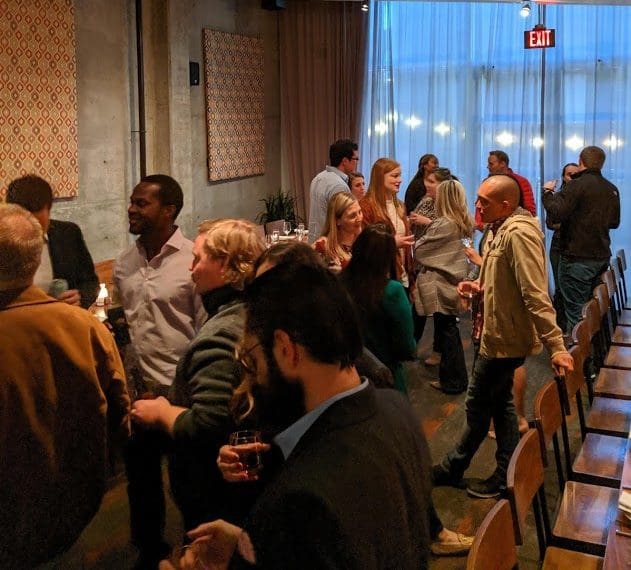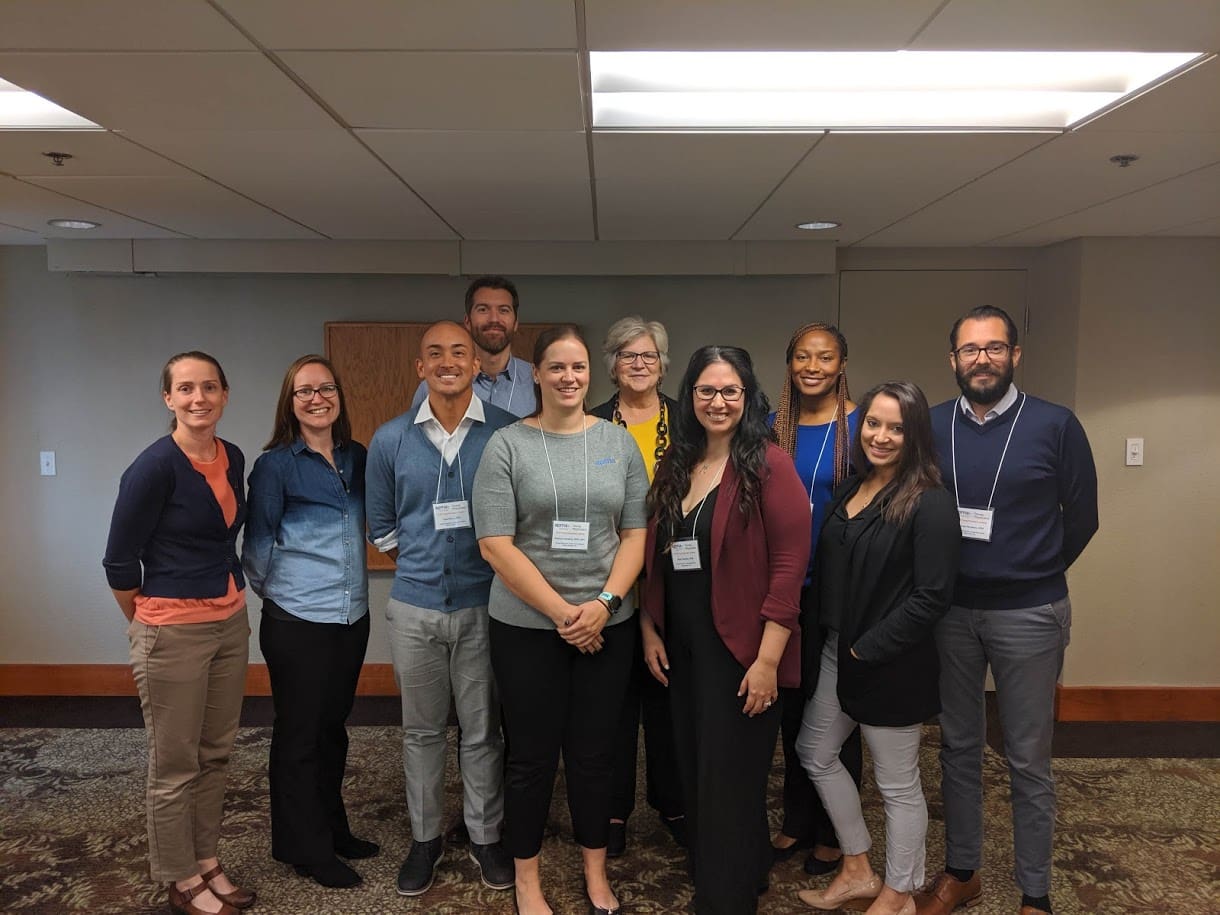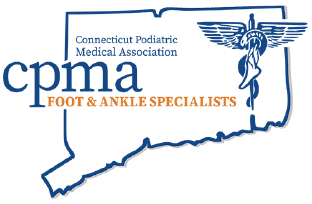New Podiatrist Leads the Way: Meet Dr. Rachel Albright
New Podiatrist Leads the Way:
Meet Dr. Rachel Albright
It’s true: CPMA and our shared profession of podiatry in Connecticut will not have a future unless we engage the next generation.
Dr. Rachel Albright, currently practicing in Darien, is a shining example of a new podiatrist stepping up to the plate and getting involved. Not only was she CPMA’s delegate to APMA’s Young Physician’s Institute last year, she has also volunteered to join our Board of Directors, and you can read about her latest research here.
We are thrilled at her support and happy to share her story, thoughts on the future, and advice for other young podiatrists in the state:

A Strong Start for an Early Career
Dr. Albright is already an active member in the medical community, and she credits that commitment to experiences early on in her career.
She always knew she wanted to be involved in healthcare, but couldn’t find a career that spoke to her. Then her college advisor recommended shadowing a local podiatrist. Once she saw how much podiatry helped patients and the caring relationships it created, she had found her career path.
Along with seeing podiatry in action, her attendance at the Young Physician Institute (YPI) helped open her eyes to all the possibilities of the field:
“YPI is a unique opportunity for young physicians to be in an intimate environment with some of the top leadership of APM, ABPM, and ABFAS with very few distractions in the way. There is really no other event I've been to where there is such a huge opportunity to discuss new ideas or concerns with top leadership and your peers.”

The YPI is valuable for physicians because its sessions feature the latest podiatric news and discussions about challenges facing new doctors. Not only does YPI promote conversation, it collects feedback from attendees to shape future National Meetings. This ensures it is always addressing the most pressing concerns for the new generation of podiatrists.
Dr. Albright found these podiatric environments incredibly welcoming to young physicians. She couldn’t help but want to join such a considerate community.
Advice from the Front Lines
While still early in her career, Dr. Albright’s perspective is especially beneficial for new podiatrists and those still in residency.
Avoid Burnout
Burnout is a real problem affecting most medical professionals, and Dr. Albright recognizes that it’s personal. She’s found that music, exercise, and light reading work especially well for her, but these are not universal solutions.
Whatever your relief may be, the best advice she can give is to pay attention to what your body and mind are telling you—and don’t be afraid to admit when you need help:
“Everyone needs something that helps take their mind off the stress associated with their responsibilities, but if you haven't found your method, don't be afraid to talk to someone about it! Anyone can burn out.”
Make the Most of Transition Periods
Transitional periods, like going from a medical student to a resident or from residency to practicing, are rife with challenges and opportunity. Despite having more responsibility and expectations with less guidance, these times provide a lot of growth:
“You really start to discern the skills you're great at, and the things that need a little extra work, which is a great opportunity for personal growth. The first year into practice is a tremendous year for character building and for the first time in your career - deciding what kind of doctor you want to be.”
Being open to change and self-improvement will make these times even more exciting and rewarding.
Be Active in Association & Community
Dr. Albright joined APMA during her residency and has remained active in APMA, CPMA, and her local communitity ever since. She recommends that her peers do the same:
“I've always felt service was an important part of life—not only to your profession, but in your personal life, family life, and in your community. It not only helps others around you, but also helps you develop into a better version of yourself. Learning to be a member of a team is important for everyone. Most of us learn this as children when we play sports or are involved in group activities at a young age, but it's a perishable skill—we need to refine this into adulthood as well. Community involvement is great for this, and rarely will you be turned away because a community has ‘too much help’!”
CPMA Membership: A Modern Look
Dr. Albright is proud to be an active member of APMA and CPMA. Not only does her membership help her improve, she can support her peers along the way.
At first, she couldn’t pass up joining APMA, since it was free for residents. Additionally, it was hard to ignore all the good association did for podiatry:
“I also always respected APMA for fighting for our profession from a governmental and policy standpoint and knew pretty early in my career that APMA would help to continue to propel our profession forward, and that was well worth my support.”
A New Member on the Board of Directors
Grateful for all that CPMA has provided, Dr. Albright decided to give back by joining our Board of Directors. Many influential podiatrists helped shape the field as it is today, making it easier and more accessible for younger generations. To keep podiatry strong, new leaders will need to emerge and work hard to make their visions a reality. After all:
“The best way to encourage other young physicians to make a difference is to lead by example—so I wanted to do my part!”
Best Lesson from CPMA
CPMA memberships provide access to the latest news, leading events, and resources to help every podiatrist improve their practice. Yet the best lesson Dr. Albright learned wasn’t about a new surgical technique, but about acceptance and leadership.
“[At CPMA,] there's no ‘special club.’ Everyone is important, and everyone's opinions are heard and acknowledged. As a young physician, it's easy to feel overwhelmed or out-of-place when in a room with wiser, more seasoned providers, but the acceptance at CPMA was clear from the start which I've been really appreciative of.”
Being a leader isn’t about showing off and boasting accolades. It’s about sharing experience and knowledge to elevate the community. CPMA is devoted to fostering this environment so all podiatrists may benefit from our efforts.
Future of Podiatry
As someone who has recently finished schooling and residency, Dr. Albright has seen how far podiatry has come and where the focus has shifted. She has a few hopes for the future of podiatry:
“I hope to see podiatry moving closer and closer toward parity with neighboring professions and to be seen as valuable members of the healthcare team for all foot and ankle problems. I think this will become more and more feasible as the younger generation of podiatrist is entering practice after completing the newer, more streamlined, three-year surgical residency. It will be harder for other doctors to stifle us after the rigorous training we have gone through.”

CPMA: Supporting Podiatrists Through Their Entire Career
Whether you’ve just completed your residency or have been in practice for decades, there’s always a reason to join CPMA.
Members receive the latest podiatric news, participate in legislative efforts, and access a support network of their peers. If you want to grow your practice, share your knowledge with new podiatrists, or just be part of a growing community, join CPMA today.
Be Active in Association & Community
Dr. Albright joined APMA during her residency and has remained active in APMA, CPMA, and her local communitity ever since. She recommends that her peers do the same:
“I've always felt service was an important part of life—not only to your profession, but in your personal life, family life, and in your community. It not only helps others around you, but also helps you develop into a better version of yourself. Learning to be a member of a team is important for everyone. Most of us learn this as children when we play sports or are involved in group activities at a young age, but it's a perishable skill—we need to refine this into adulthood as well. Community involvement is great for this, and rarely will you be turned away for a community having ‘too much help’!”


